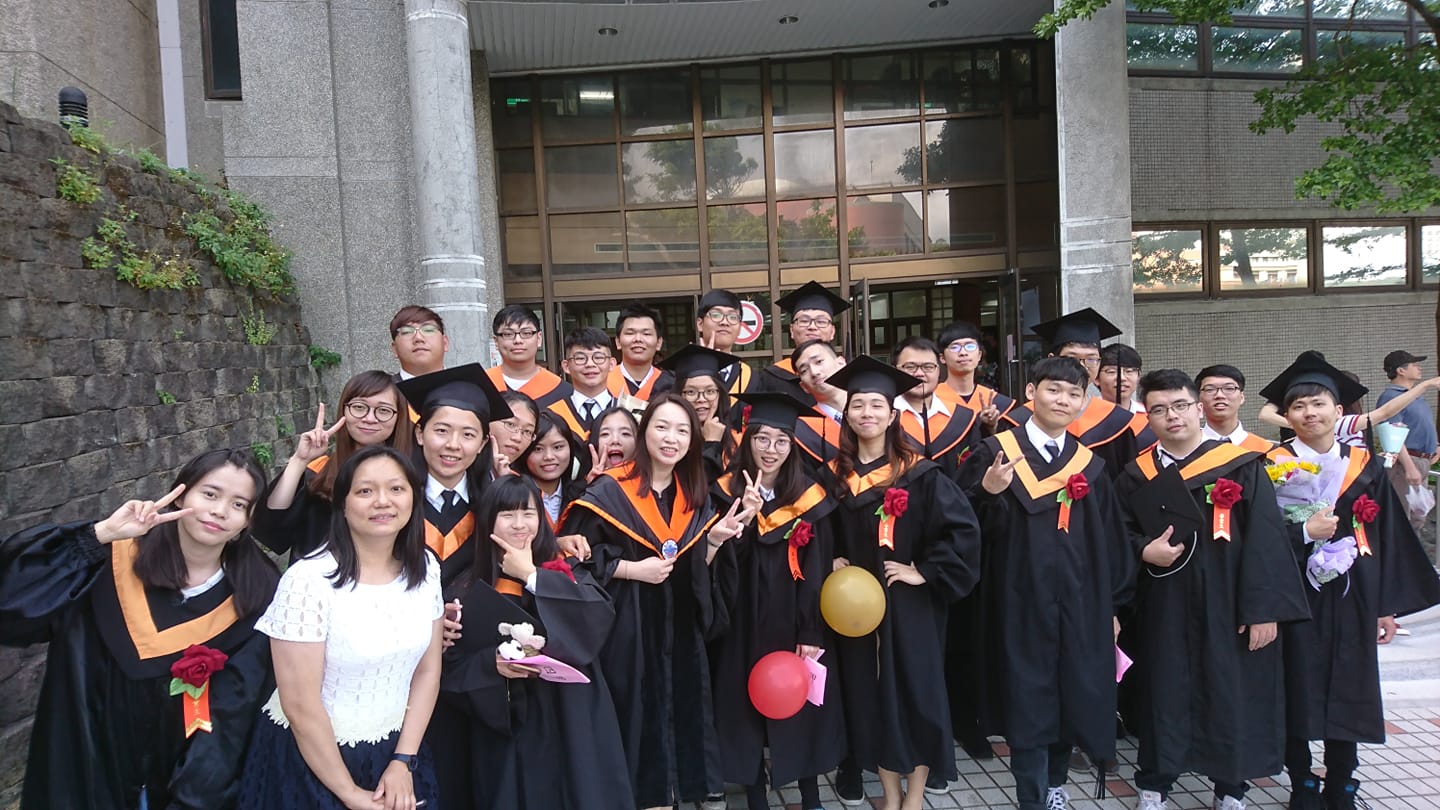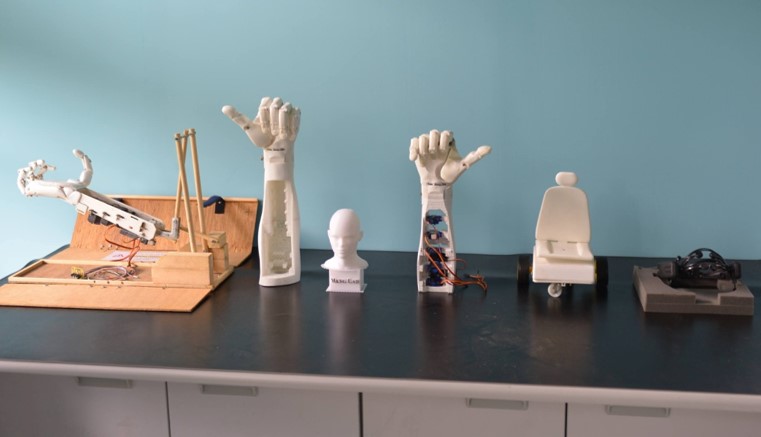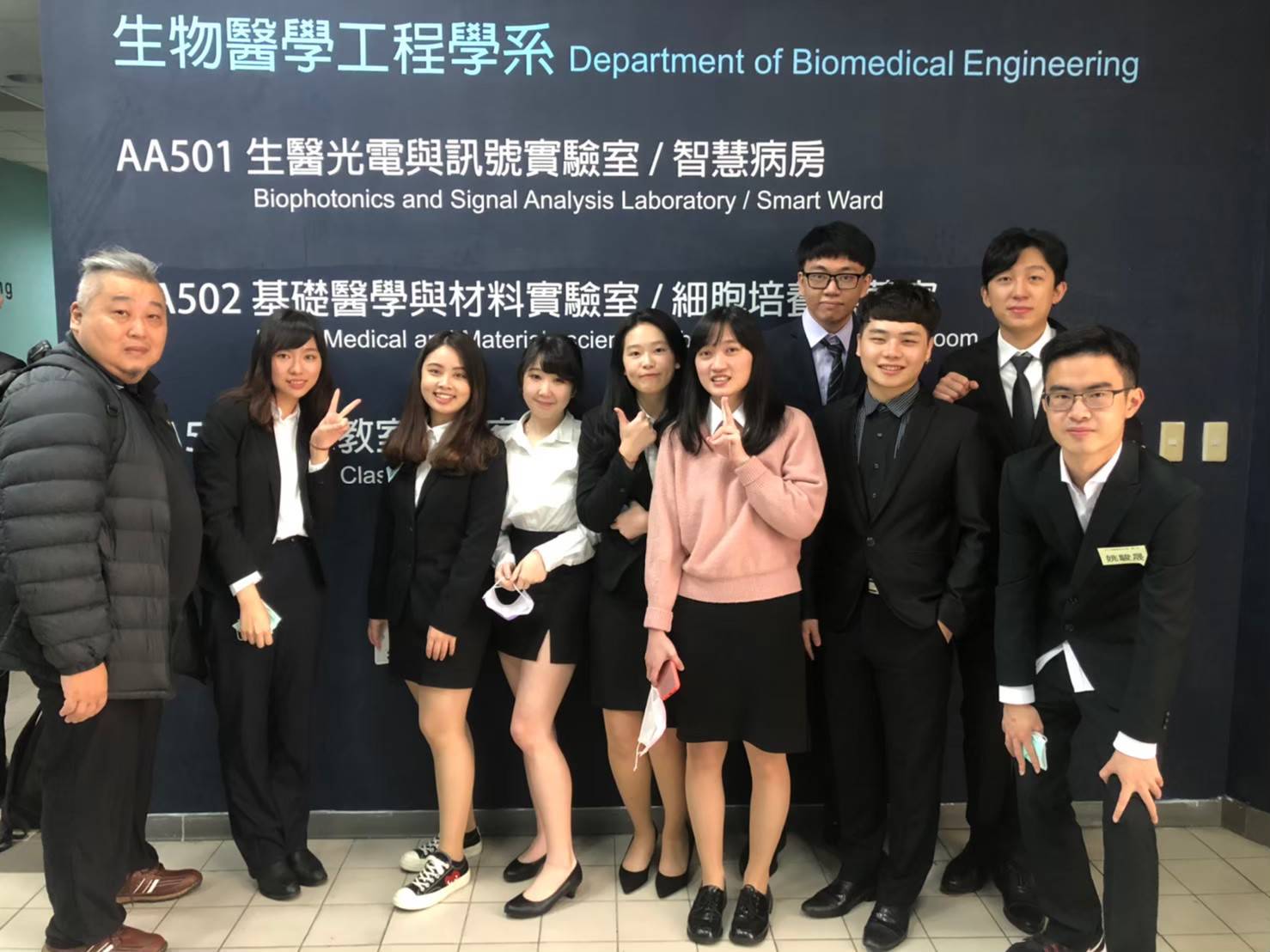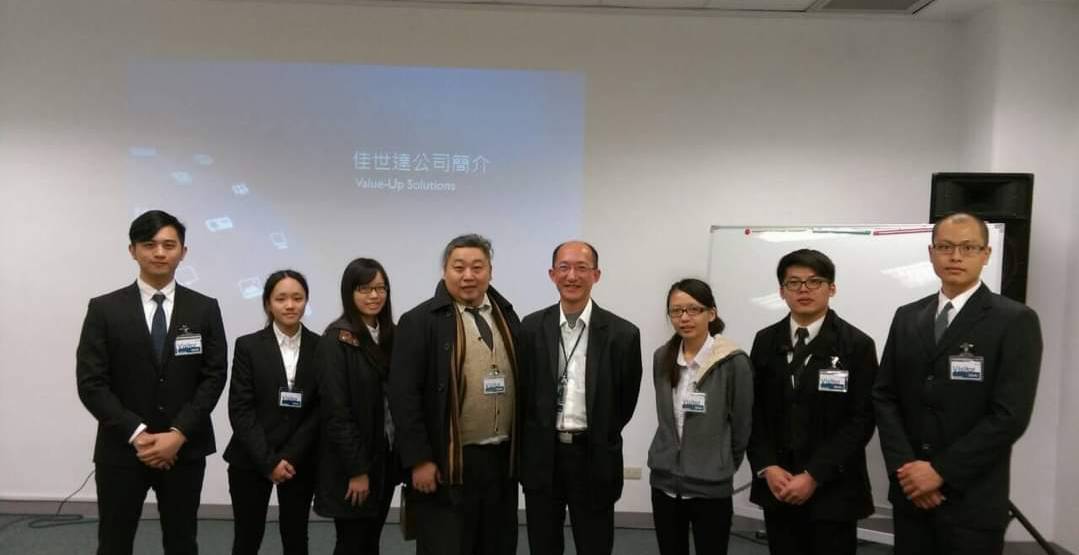Brief introduction
Biomedical engineering is an interdisciplinary program integrating the fields of biology, medicine and engineering. The key feature of this program is to apply engineering technology to biological and medical fields. In this modern era of pursuing ‘slashie life’, multi-faceted learning and development are key. We provide rich learning elements that include clinical medicine diagnostic treatment, medical device patent practice, tissue engineering, biomedical informatics, optoelectronic signals, even AI healthcare is included, which assist students to develop their potential well in each applied field.
Project
During the period of studying in this Department, each student of Biomedical Engineering must complete a graduation project or an internship to integrate professional knowledge and technology they have learned from their courses, apply what they have learned in research and report in an academic symposium before graduation. Each student can exchange, share and learn from one another through the research in different fields.
Project results
The graduation research project results are produced within the team led by Professor Yang, Chia-Yen of the Medical Electronics Section. This research lab is studying computer signals, comprising the processing of biological signals through the writing of analysis programs and further applications including electromyography and electrocardiography. Recently, AI and VR applications have been introduced, the research results from which include 3D-printed bionic arm, brain-controlled wheelchair, visual speech recognition system and VR balance training system. The department’s aim is cultivate students with critical thinking ability through lab training and nurture students to be future biomedical engineering talents.








